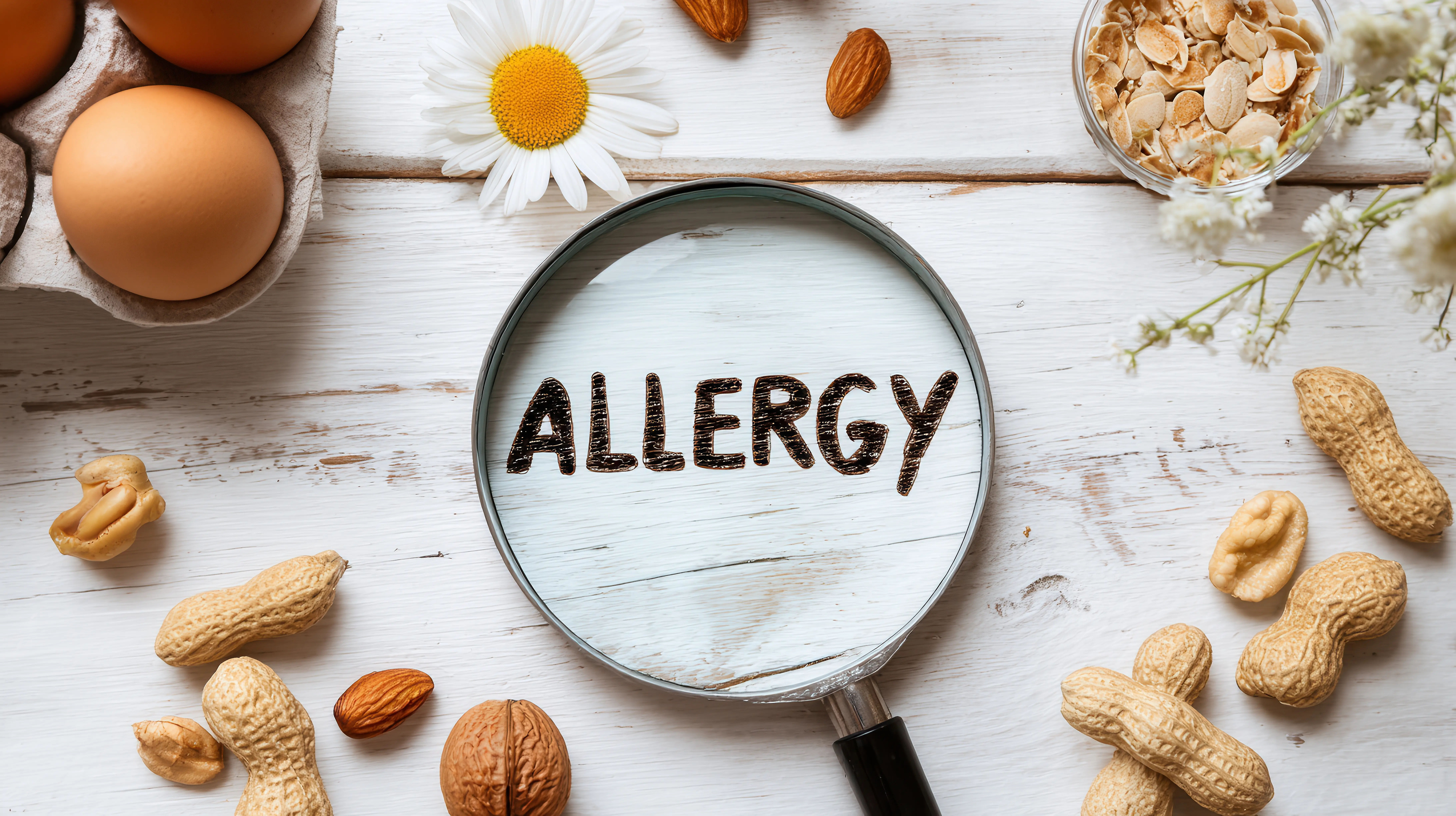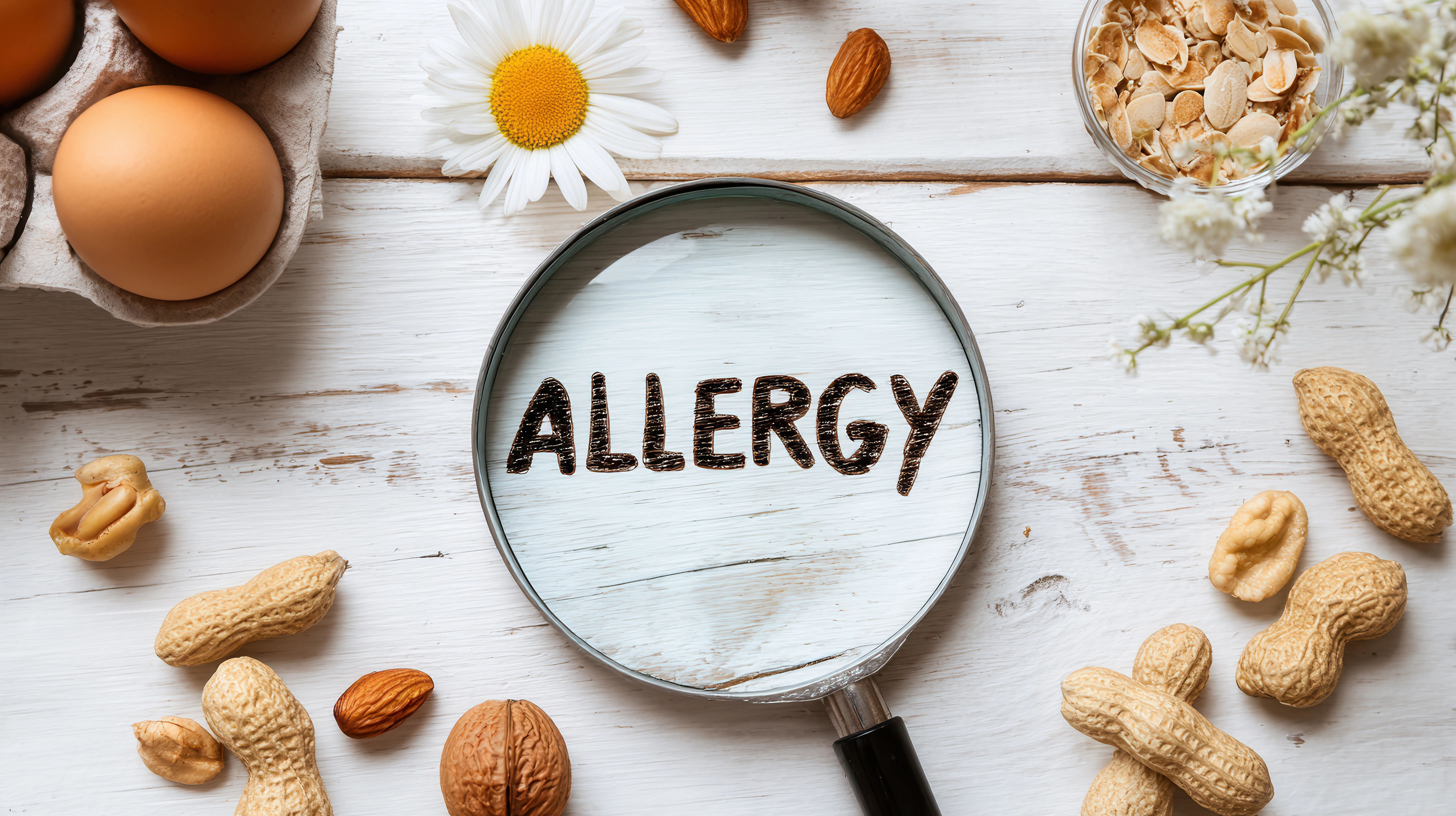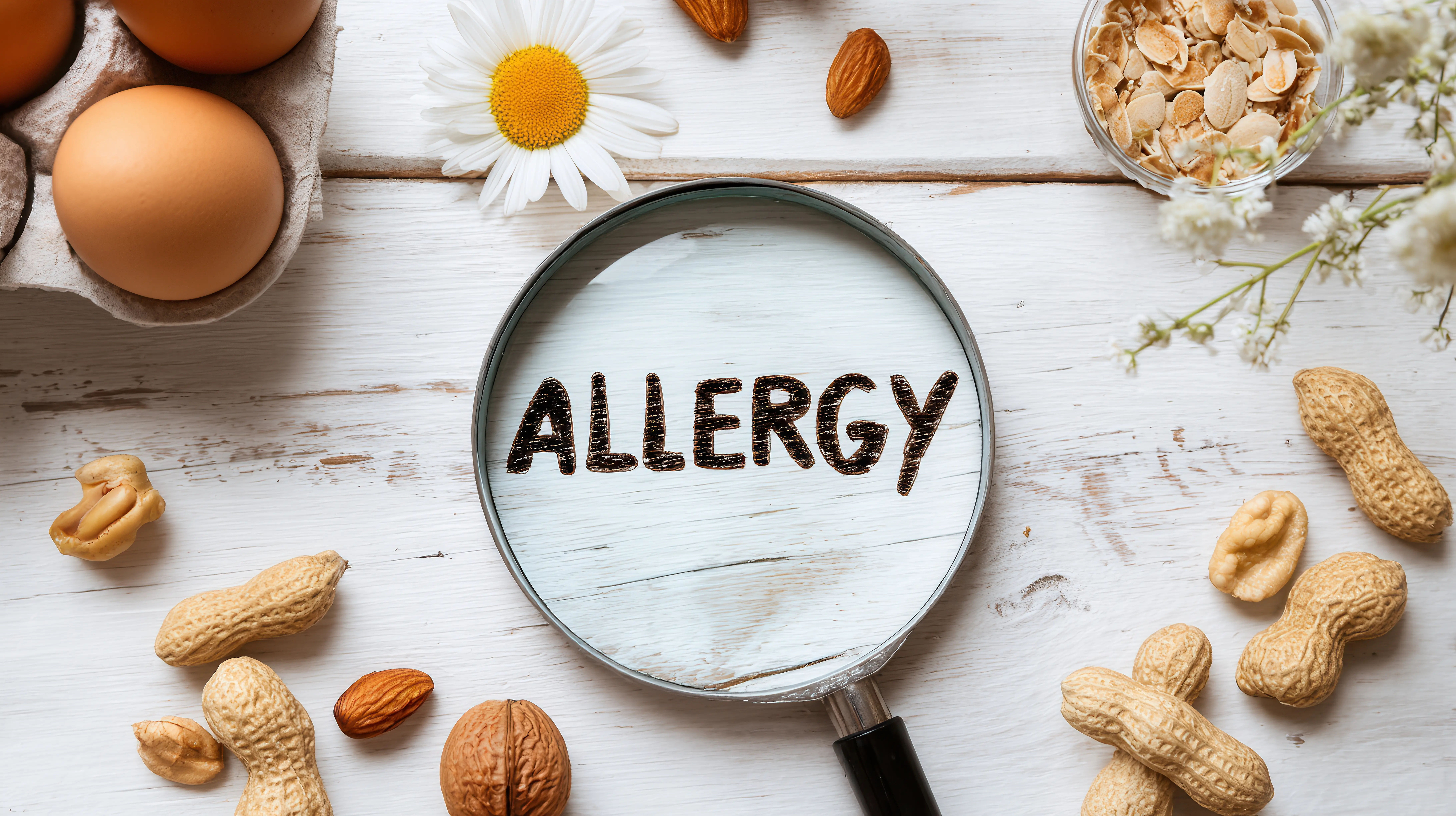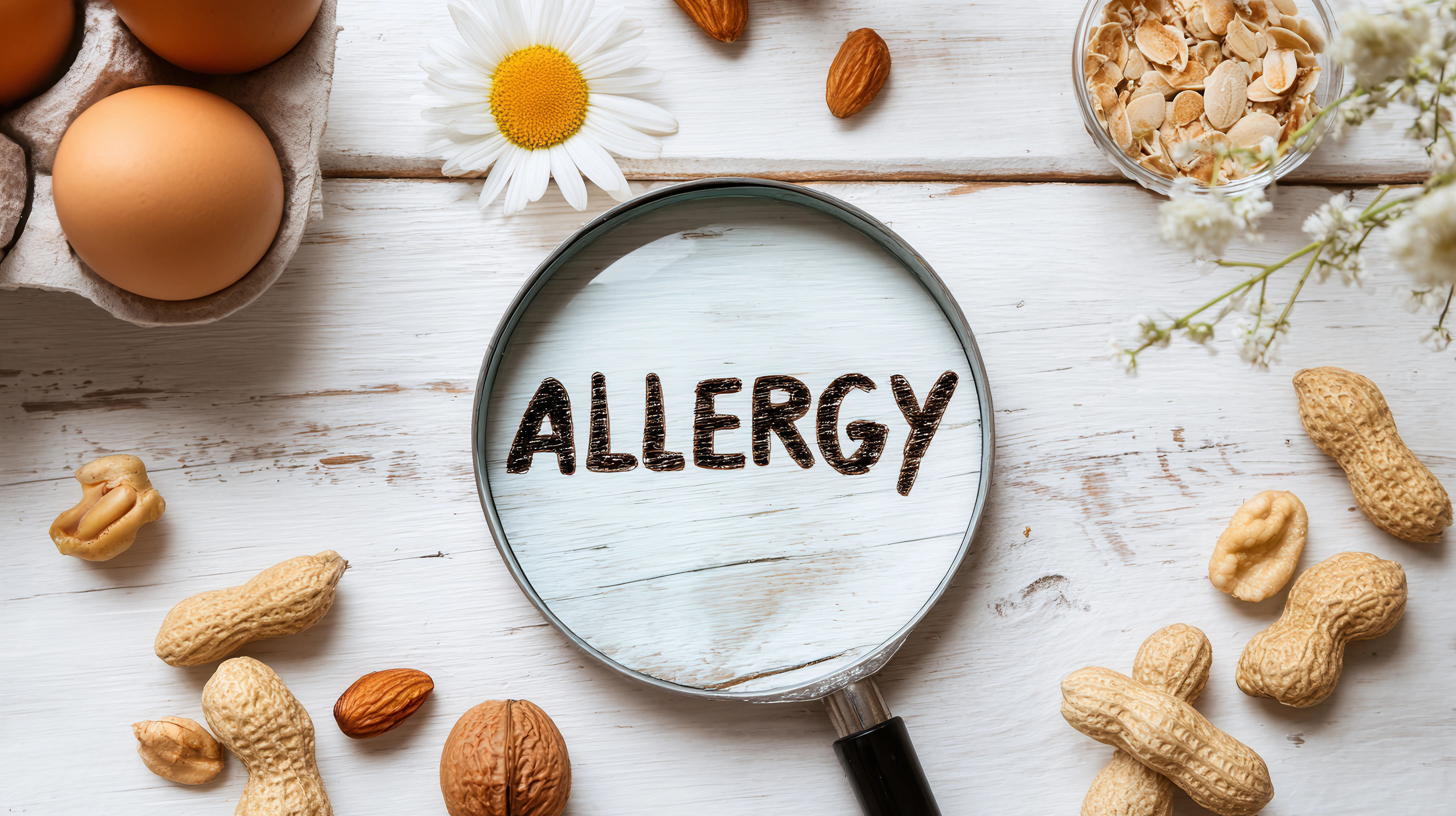Food Allergies in Infants
Learn about food allergies in infants, including common triggers, signs to watch for, and how to manage allergic reactions. Discover tips for early detection and safe dietary practices.

Written by Dr. D Bhanu Prakash
Reviewed by Dr. Shaik Abdul Kalam MD (Physician)
Last updated on 13th Jan, 2026
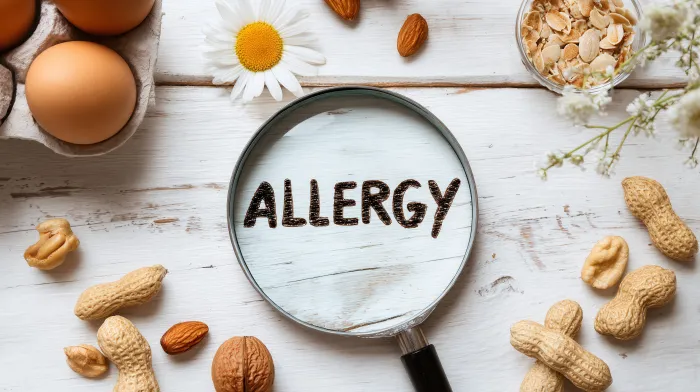
Introduction
As a parent, watching your baby grow and explore new foods is an exciting journey. However, it can also bring concerns, especially if your little one shows signs of a food allergy. Food allergies in infants are more common than you might think, but with the right knowledge, you can keep your baby safe and healthy.
What Are Food Allergies?
A food allergy happens when the body’s immune system mistakenly treats a harmless food protein as a threat. This triggers an allergic reaction, which can range from mild (rashes, itching) to severe (trouble breathing). Unlike food intolerances (which affect digestion), allergies involve the immune system and can be life-threatening in some cases.
Health topic carousel:
Doctor's speciality: Pediatrics
Text: Consult a Top Pediatrician
Common Food Allergens in Infants
While any food can cause an allergy, some are more likely to trigger reactions in babies:
1. Cow’s Milk – The most common allergy in infants, often noticed when switching from breastmilk to formula.
2. Eggs – Especially egg whites.
3. Peanuts & Tree Nuts – Can cause severe reactions.
4. Soy – Found in many infant formulas.
5. Wheat – May cause digestive or skin reactions.
6. Fish & Shellfish – Less common in infants but possible.
Signs & Symptoms of Food Allergies in Babies
Food allergy reactions can appear within minutes or up to two hours after eating. Watch for these signs:
Mild to Moderate Symptoms:
Skin reactions – Hives, redness, eczema flare-ups
Digestive issues – Vomiting, diarrhea, stomach pain
Respiratory symptoms – Sneezing, runny nose, mild wheezing
Swelling – Around the lips, face, or eyes
Severe Symptoms (Anaphylaxis – Requires Emergency Care):
Difficulty breathing or swallowing
Sudden drop in blood pressure (pale skin, weak pulse)
Severe swelling of the throat or tongue
Loss of consciousness
If your baby shows severe symptoms, seek emergency help immediately.
Causes & Risk Factors
While the exact cause of food allergies is unknown, some factors increase the risk:
Family history – If parents or siblings have allergies, asthma, or eczema.
Early exposure – Introducing allergenic foods too early or too late may play a role.
Eczema – Babies with eczema are more likely to develop food allergies.
Diagnosing Food Allergies
If you suspect your baby has a food allergy, consult a pediatrician or allergist. They may recommend:
Elimination diet – Removing suspected foods and reintroducing them later.
Skin prick test – Small amounts of allergens are applied to the skin to check reactions.
Blood test – Measures antibodies to specific foods.
Health topic carousel:
Lab Test: Allergy Test
Text: Get Your Health Assessed
Managing Food Allergies in Infants
Below are the ways to manage food allergies in infants,
1. Breastfeeding & Formula Choices
If breastfeeding, avoid allergenic foods if your baby reacts to them through milk.
For formula-fed babies with cow’s milk allergy, hypoallergenic formulas (like hydrolyzed or amino acid-based) may be recommended.
2. Introducing Solids Safely
Start with single-ingredient foods (rice cereal, pureed veggies) before introducing allergens.
Introduce common allergens one at a time, waiting 3-5 days between new foods.
Early introduction of peanuts (as per pediatrician’s advice) may reduce allergy risk.
3. Reading Food Labels
Always check ingredients for hidden allergens (e.g., milk in processed foods).
Be cautious with packaged baby foods.
4. Emergency Preparedness
If your baby has a severe allergy, keep an epinephrine auto-injector (EpiPen) as prescribed.
Teach caregivers about allergy signs and emergency steps.
When to See a Doctor
Consult a pediatrician if:
Your baby has persistent eczema or digestive issues.
You suspect a food allergy after introducing new foods.
There’s a family history of allergies.
If needed, you can book an allergy consultation or test through Apollo 24|7 for expert guidance.
Final Thoughts
Food allergies in infants can be worrying, but with awareness and proper care, most babies outgrow them over time. Always introduce new foods carefully, watch for reactions, and consult a doctor if in doubt. Your little one’s health is precious—staying informed is the best way to protect them.
Health topic carousel:
Doctor's speciality: Pediatrics
Text: Consult a Top Pediatrician
